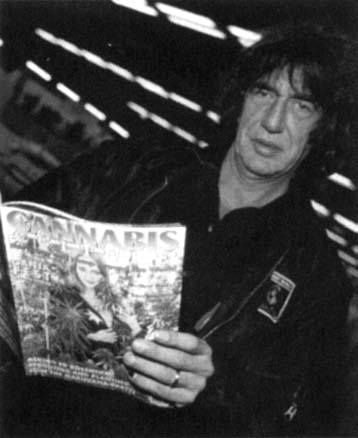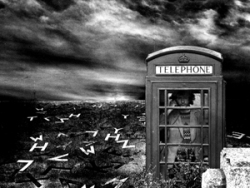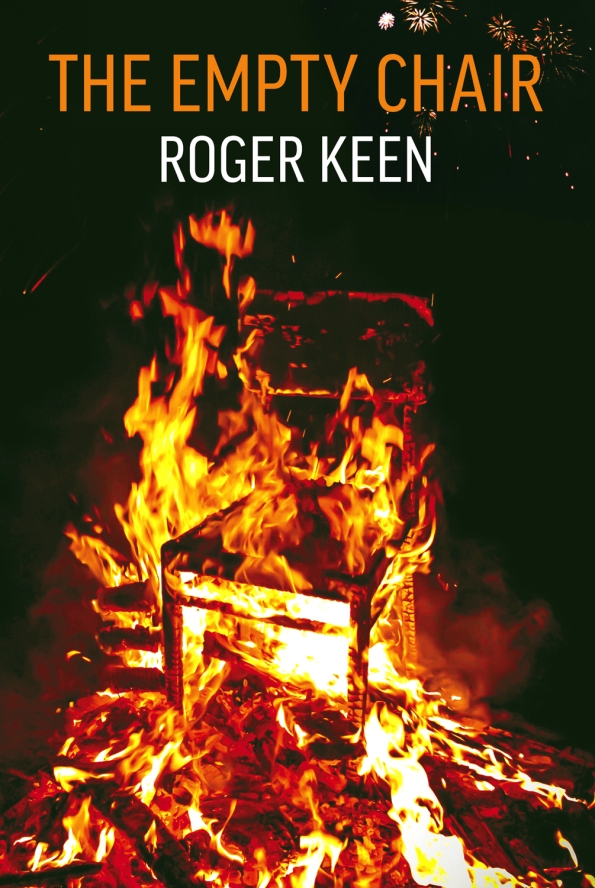Archive
The Man and the Legend: An Appreciation of Howard Marks
My in-depth study of Howard Marks, originally published in Issue XXI of the Psychedelic Press journal, is now available online.
 Dennis Howard Marks, cannabis smuggler extraordinaire, died from cancer in 2016 at the age of 70. Born in 1945, he belonged to that generation who came of age as the alternative society and psychedelic drug culture really began to flower in the second half of the 1960s, and like so many who are now venerated icons he rode that wave for all it was worth. He looked like a member of a hard rock band and he brought pop star glamour and celebrity sheen to the world of drug crime like no other figure. In this he was harking back to earlier, more romantic ages, taking the form of a 20th century Robin Hood, Dick Turpin or Captain Kidd—in fact in Señor Nice he claims family connections to the Welsh buccaneer, Sir Henry Morgan. Howard also acted in several films, and had he been given the chance, he would have fitted perfectly into the Pirates of the Caribbean franchise, alongside Johnny Depp and Keith Richards.
Dennis Howard Marks, cannabis smuggler extraordinaire, died from cancer in 2016 at the age of 70. Born in 1945, he belonged to that generation who came of age as the alternative society and psychedelic drug culture really began to flower in the second half of the 1960s, and like so many who are now venerated icons he rode that wave for all it was worth. He looked like a member of a hard rock band and he brought pop star glamour and celebrity sheen to the world of drug crime like no other figure. In this he was harking back to earlier, more romantic ages, taking the form of a 20th century Robin Hood, Dick Turpin or Captain Kidd—in fact in Señor Nice he claims family connections to the Welsh buccaneer, Sir Henry Morgan. Howard also acted in several films, and had he been given the chance, he would have fitted perfectly into the Pirates of the Caribbean franchise, alongside Johnny Depp and Keith Richards.
Howard’s Facebook pages are crammed with fan’s proud selfies taken alongside the man, and there and elsewhere he is continually referred to as a ‘legend’. The creation of the Legend that surrounds him was very much his own doing, and intriguingly he cultivated fame as a dope smuggler even though he knew he was playing a Faustian game—receiving publicity and avoiding law enforcement do not go hand in hand! He had a very good run and a number of close shaves with the law until his eventual downfall in 1988, leading to a sentence of 25 years at Terre Haute prison in Indiana, though he was released in 1995.
Read more on: Psychedelic Press UK
The Man and the Legend: An Appreciation of Howard Marks
 The new Psychedelic Press Journal Volume XXI contains my in-depth appreciation of Howard Marks, alongside some other excellent articles and fronted by a fabulously trippy cover from artist Rebecca Jordan.
The new Psychedelic Press Journal Volume XXI contains my in-depth appreciation of Howard Marks, alongside some other excellent articles and fronted by a fabulously trippy cover from artist Rebecca Jordan.
Dennis Howard Marks, cannabis smuggler extraordinaire, died from cancer in 2016 at the age of seventy. Born in 1945, he belonged to that generation who came of age as the alternative society and psychedelic drug culture really began to flower in the second half of the 1960s, and like so many who are now venerated icons he rode that wave for all it was worth. He looked like a member of a hard rock band and he brought pop star glamour and celebrity sheen to the world of drug crime like no other figure. In this he was harking back to earlier, more romantic ages, taking the form of a twentieth century Robin Hood, Dick Turpin or Captain Kidd – in fact in Señor Nice he claims family connections to the Welsh buccaneer Sir Henry Morgan. Howard also acted in several films, and had he been given the chance, he would have fitted perfectly into the Pirates of the Caribbean franchise, alongside Johnny Depp and Keith Richards.
To read more, visit the Psychedelic Press Shop.
Mad Art and Reality Hunger
 It’s always heartening to discover another writer who, perhaps by taking a very different path, has nonetheless arrived at a very similar creative place to oneself. This happened when I saw David Shields being interviewed on a BBC arts programme about his book Reality Hunger and the broader implications of the concept. He talked about the impoverishment of traditional fictional techniques and how today’s writers are incorporating more and more ‘reality’—that is, what really happened as opposed to what they made up—into their work. There is, he reckoned, a larger ‘reality hunger’ out there, manifesting in other media, such as reality television and the less adorned, more immediate communication afforded by the internet. Listening to Shields, I thought: that could be me talking, and I was amused by the discussion session following the film insert, where several panel members disagreed with him.
It’s always heartening to discover another writer who, perhaps by taking a very different path, has nonetheless arrived at a very similar creative place to oneself. This happened when I saw David Shields being interviewed on a BBC arts programme about his book Reality Hunger and the broader implications of the concept. He talked about the impoverishment of traditional fictional techniques and how today’s writers are incorporating more and more ‘reality’—that is, what really happened as opposed to what they made up—into their work. There is, he reckoned, a larger ‘reality hunger’ out there, manifesting in other media, such as reality television and the less adorned, more immediate communication afforded by the internet. Listening to Shields, I thought: that could be me talking, and I was amused by the discussion session following the film insert, where several panel members disagreed with him.
So I approached the book Reality Hunger with considerable excitement, while at the same time anticipating some mild disappointment due to my high expectations. But I wasn’t at all disappointed: the book proved to be everything I had hoped it would. It’s subtitled ‘a manifesto’, and it takes the form of numbered sections of varying lengths, which each have an aphoristic or epigrammatic quality. Many of the shorter ones are actual quotes from a wide range of writers and other artists, which Shields, acting like a DJ or MC, ‘samples’ and incorporates into the overall ‘mashup’. It is very effective and underscores the book’s textual points in a textural way, much like a plastic work of art. And as for the accusation of plagiarism, he answers that in the form of a quote from Picasso: art is theft. Who can argue?
As a drug memoirist, I had a special interest because I knew from the interview that this is an area Shields touches upon, and to my mind drug writing is an important component in the spectrum of this push toward ‘reality’. Indeed he mentions the Vedas—citing them as the earliest examples of written storytelling—and also De Quincey, Burroughs and Hunter S. Thompson before getting stuck into James Frey and his infamous tome A Million Little Pieces. Here is one of the finest examples of an ideological clash between ‘reality’ and ‘fiction’ in a contemporary book. Telling the story of a hopeless, burnt-out, twenty-three-year-old drug addict, who mends himself in a rehab centre, Frey firstly wrote the book as a novel, and when he had no success at marketing it, he rebranded it as memoir, after which it was outstandingly successful, selling in the millions.
Around three years after its first publication, details emerged of falsifications within the book, primarily that Frey had greatly exaggerated his criminal past, creating jail time that didn’t actually exist. This put his publisher in an embarrassing position, regarding the definition of ‘non-fiction’ and opened up a debate on the latitude of factual reportage within memoirs. It reached a climax when Frey and his publisher appeared on the Oprah Winfrey show and the result was a public crucifixion for the heresy of daring to place lies into a so-called work of fact. Afterwards Frey was dropped by his agent, and his publishers made him insert an apology into future editions. Past readers were even offered a refund, such was the furore the incident created.
As reported in Reality Hunger: ‘Oprah has created around herself a “cult of confession” that offers only one prix-fixe menu to those who enter her world. First the teasing crudités of the situation, sin or sorrow hinted at. The entrée is the deep confession or revelation. Next, a palate-cleaning sorbet of regret and repentance, the delicious forgiveness served by Oprah herself on behalf of all humanity… I’m disappointed not that Frey is a liar but that he isn’t a better one. He should have said, Everyone who writes about himself is a liar. I created a person meaner, funnier, more filled with life than I could ever be.’
Oh, that rings so many bells. Having written about my twenty- to twenty-four-year-old self in The Mad Artist, I discovered that however much you try to stick to the truth or the facts, you cannot help but turn yourself and others into ‘characters’, and characters start to assume a destiny of their own on the page. For me the writing of a ‘novelistic memoir’ was both an act of serving up reality and one of full literary performance at the same time. Read more…
Cinema Review: Mr. Nice
 Amongst the hash-head community in Britain, Howard Marks is a bone fide legend. Belonging to the same generation as the Rolling Stones, with similar looks, hairstyle and attitude, he has become a paterfamilias of the pro-cannabis movement, a figure whose former criminal activities have given him a Robin Hood or Butch Cassidy status—a freedom fighter with a smile on his face, as his famous moniker suggests.
Amongst the hash-head community in Britain, Howard Marks is a bone fide legend. Belonging to the same generation as the Rolling Stones, with similar looks, hairstyle and attitude, he has become a paterfamilias of the pro-cannabis movement, a figure whose former criminal activities have given him a Robin Hood or Butch Cassidy status—a freedom fighter with a smile on his face, as his famous moniker suggests.
As ‘careers’ in cannabis go, his has no equal, starting with his introduction to the drug as an Oxford undergraduate in the 1960s, moving quickly through the ranks of smuggling to become a major player through the ’70s and ’80s, whilst having spectacular run-ins with international policing and attaining media celebrity in the process. Later, he became a best-selling author with his autobiography, Mr. Nice, and other books, and also carved out a niche as a stage performer, a DJ and raconteur, pontificating at length about his favourite subject. He could have been a Richard Branson-type alternative entrepreneur, apart from the mere detail that his trade was highly illegal.
Mr. Nice the movie encapsulates this picaresque life, using Marks’ own choice of actor to play him, Rhys Ifans, a fellow Welshman and like-minded friend. The evident chemistry between the two works well, with Ifans in dark wigs slipping easily into another louche Welsh charmer role, assuredly inhabiting the character of ‘Howard Marks’ and making him very sympathetic.
The movie starts with Howard’s teenage life in Glamorganshire, which, shot in black and white, 4 : 3 ratio, has a kitchen sink-drama quality, made stranger, almost Dennis Potteresque, by using Ifans himself rather than a youthful look-alike. Gaining a scholarship to Oxford, Howard mixes with the toffs and posh totty, and like Dorothy entering the land of Oz, his world blossoms into colour and widescreen after having his first toke of dope, soon followed by the inevitable sugar cube of LSD.
This method of referencing the visual formats of the era is further reinforced by blending in actual period background footage, with Howard digitally transposed into the scenes and rendered suitably grainy to match them—a nice touch, giving a contemporary technical leg-up to nostalgia. These early scenes of university life, partying and self-discovery are given a similar treatment to that of druggy films of the era, such as The Trip, Easy Rider and Performance, compounding the period associations yet more. Read more…


